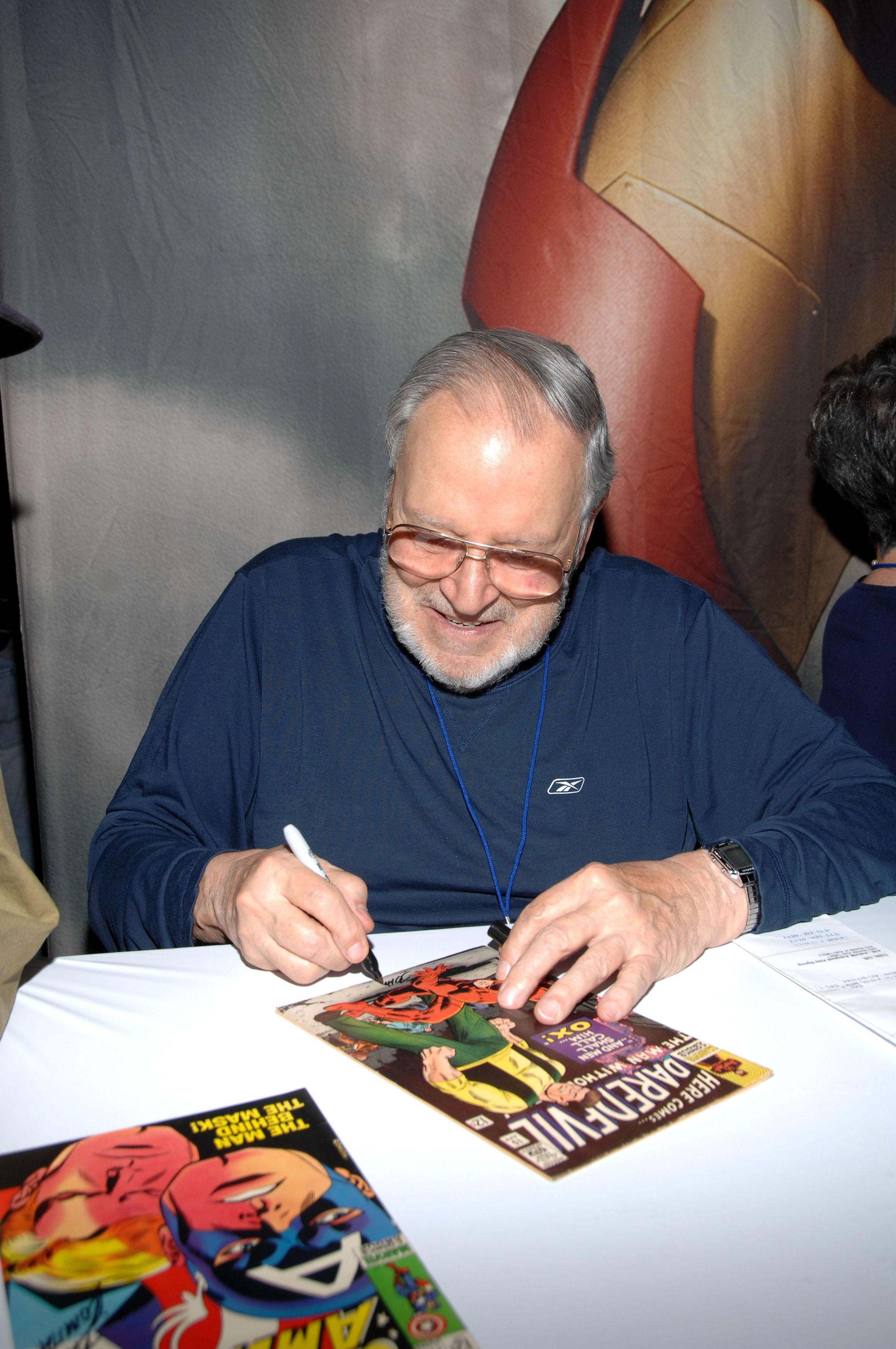John Romita Sr: Marvel artist who contributed to Spider-Man and Wolverine dies
 IMAGE SOURCE,GETTY IMAGESImage caption,
IMAGE SOURCE,GETTY IMAGESImage caption,John Romita worked on many Spider-Man projects for Marvel, as well as a Superman cover for DC
By Paul Glynn
Entertainment reporter
Marvel Comics artist John Romita Sr, who helped to create characters such as Wolverine and Spider-Man's girlfriend Mary Jane Watson, has died aged 93.
He also had a hand in other favourites such as Kingpin and the Punisher.
His death was confirmed on Tuesday by his son and fellow comics artist John Romita Jr, who confirmed his father had "passed away peacefully in his sleep".
"He is a legend in the art world and it would be my honour to follow in his footsteps," he posted on social media.
Born in Brooklyn, New York, Romita graduated from Manhattan's School of Industrial Art in 1947 and served in the army before starting working in comics.
He gained a reputation working on titles for companies would become Marvel and DC - Timely Comics and National Comics.
From 1966 he worked with Marvel editor-in-chief Stan Lee on The Amazing Spider-Man, replacing original artist Steve Ditko, while helping it to become the company's top-seller.
His tenure saw the introduction of Spider-Man's love interest Mary Jane Watson and his adversary Punisher, the assassin; as well as the crime boss Kingpin.

IMAGE SOURCE,MARC STAMAS
Many of his famous characters have gone on to appear in countless TV shows and films
In the early 1970s, Romita became Marvel's art director - a role he would serve in for more than two decades - contributing to the design of characters including Wolverine, who first appeared in an Incredible Hulk publication.
He also helped to come up with Luke Cage, one of the earliest black superheroes to feature in a Marvel comic book.
Other enduring Spider-Man characters he was involved in originating included the villainous Vulture, mobster Hammerhead and the sonic-powered Shocker, as well as the Hobgoblin, journalist Robbie Robertson and Gwen Stacy's father George Stacy.
He completed artwork for a number of classic titles including The Night Gwen Stacy Died, from 1973; and the wedding of Spider-Man's alter-ego Peter Parker and Mary Jane in 1987.
'I can make it better'
Romita semi-retired in 1996 but continued to work on Spider-Man projects for Marvel as well as a Superman cover for DC.
Many of his famous characters have gone on to appear in TV shows and films, both live-action and animated, and his death comes the week after Sony's Spider-Man sequel, Across the Spider-Verse proved to be a box office success.
"No matter what success I've had, I've always considered myself a guy who can improve on somebody else's concepts," he said in a 2002 interview. "A writer and another artist can create something, and I can make it better."
The same year, the artist was inducted into the Eisner Awards Hall of Fame, and later the Inkwell Awards Hall of Fame in 2020.
Romita is survived by his wife, Virginia, and two sons Romita Jr and Victor.
Many of his famous characters have gone on to appear in countless TV shows and films
In the early 1970s, Romita became Marvel's art director - a role he would serve in for more than two decades - contributing to the design of characters including Wolverine, who first appeared in an Incredible Hulk publication.
He also helped to come up with Luke Cage, one of the earliest black superheroes to feature in a Marvel comic book.
Other enduring Spider-Man characters he was involved in originating included the villainous Vulture, mobster Hammerhead and the sonic-powered Shocker, as well as the Hobgoblin, journalist Robbie Robertson and Gwen Stacy's father George Stacy.
He completed artwork for a number of classic titles including The Night Gwen Stacy Died, from 1973; and the wedding of Spider-Man's alter-ego Peter Parker and Mary Jane in 1987.
'I can make it better'
Romita semi-retired in 1996 but continued to work on Spider-Man projects for Marvel as well as a Superman cover for DC.
Many of his famous characters have gone on to appear in TV shows and films, both live-action and animated, and his death comes the week after Sony's Spider-Man sequel, Across the Spider-Verse proved to be a box office success.
"No matter what success I've had, I've always considered myself a guy who can improve on somebody else's concepts," he said in a 2002 interview. "A writer and another artist can create something, and I can make it better."
The same year, the artist was inducted into the Eisner Awards Hall of Fame, and later the Inkwell Awards Hall of Fame in 2020.
Romita is survived by his wife, Virginia, and two sons Romita Jr and Victor.
No comments:
Post a Comment